Xledger integration
Save time and increase data quality by connecting to Xledger. A simple way to import and synchronize people between your organization in Huma and your Xledger account
Table of Contents
Set up integration- Multiple connections
- Step 1: Get an API token from Xledger
- Step 2: Connect Huma to Xledger
- Step 3: Activate the integration. Synchronize users and choose how to handle conflicts or missing value
- Step 4: Your connection between Huma and Xledger is active 🥳
Active integration
General questions
Xledger
Xledger integration makes HR and payroll more efficient and reliable by keeping your people data consistent across Huma and Xledger.
- To configure an integration in Huma, you must have a "System role with full access permissions for Organization".
- If you are unsure which roles are required on the Xledger side to complete the integration setup, please contact Xledger support for guidance.
Multiple connections
If you need to configure multiple integration instances, follow the setup guidance provided here.
1. Get an API token from Xledger
To create a token in Xledger, you must be an "Administrator".
- Log in as "Administrator"
- Go to Administration > System Access > GraphQL > API tokens
- Generate a new access token and give the following access
- Click "Generate token"
- Copy token to clipboard
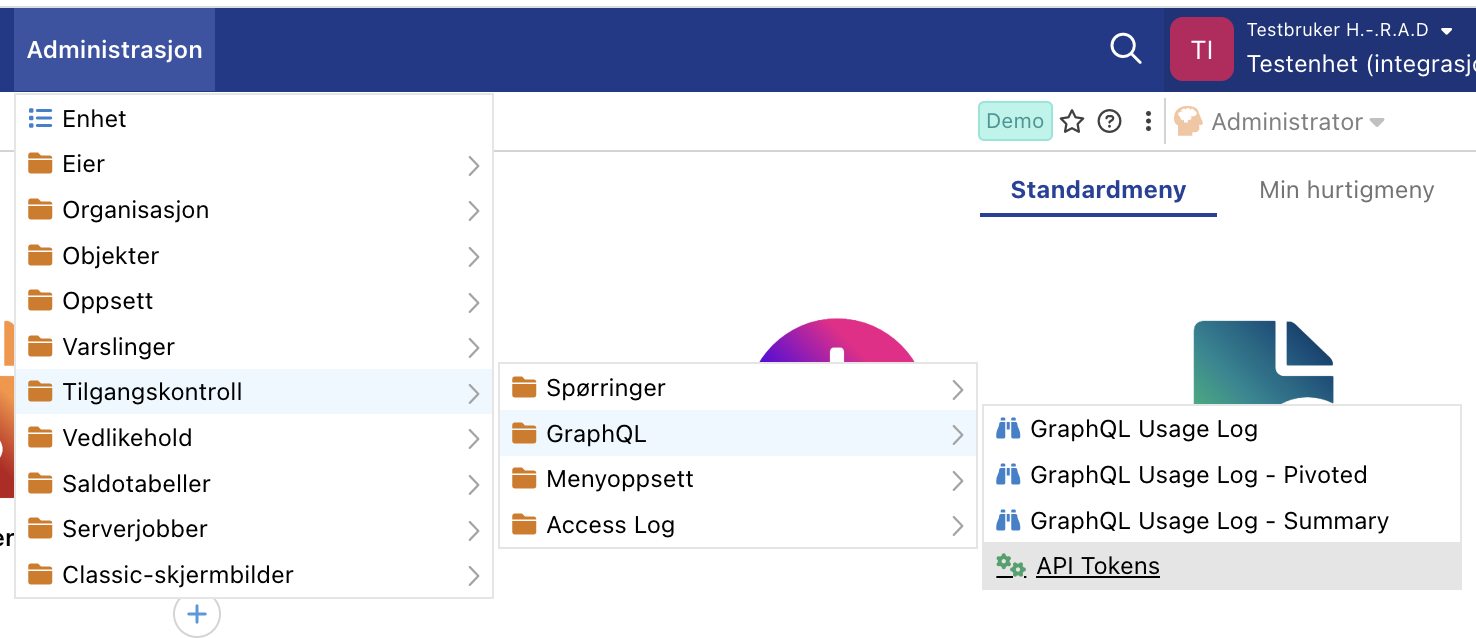
Scope Access (read/write) Human Resources Employee: read/write Common Address: read
Contact: read/write
Company: read
Country: read
Object Value: read
Subledger: read/write
Supplier: read/write
System Value: readGeneral ledger General ledgerBank: read 
2a. Connect Huma to Xledger
To set up the integration in Huma, you must be a "System administrator with full access to Organization > Organization-wide settings".
- Login to your Huma account as Administrator
- Go to 'Integrations' in the main menu
- Open 'Xledger'
- Read through the documentation in the "Overview" and "Details" tabs.
- Click 'Set up' in the upper right corner
- Paste the created Xledger API token key and check the box to verify you have the proper authority.
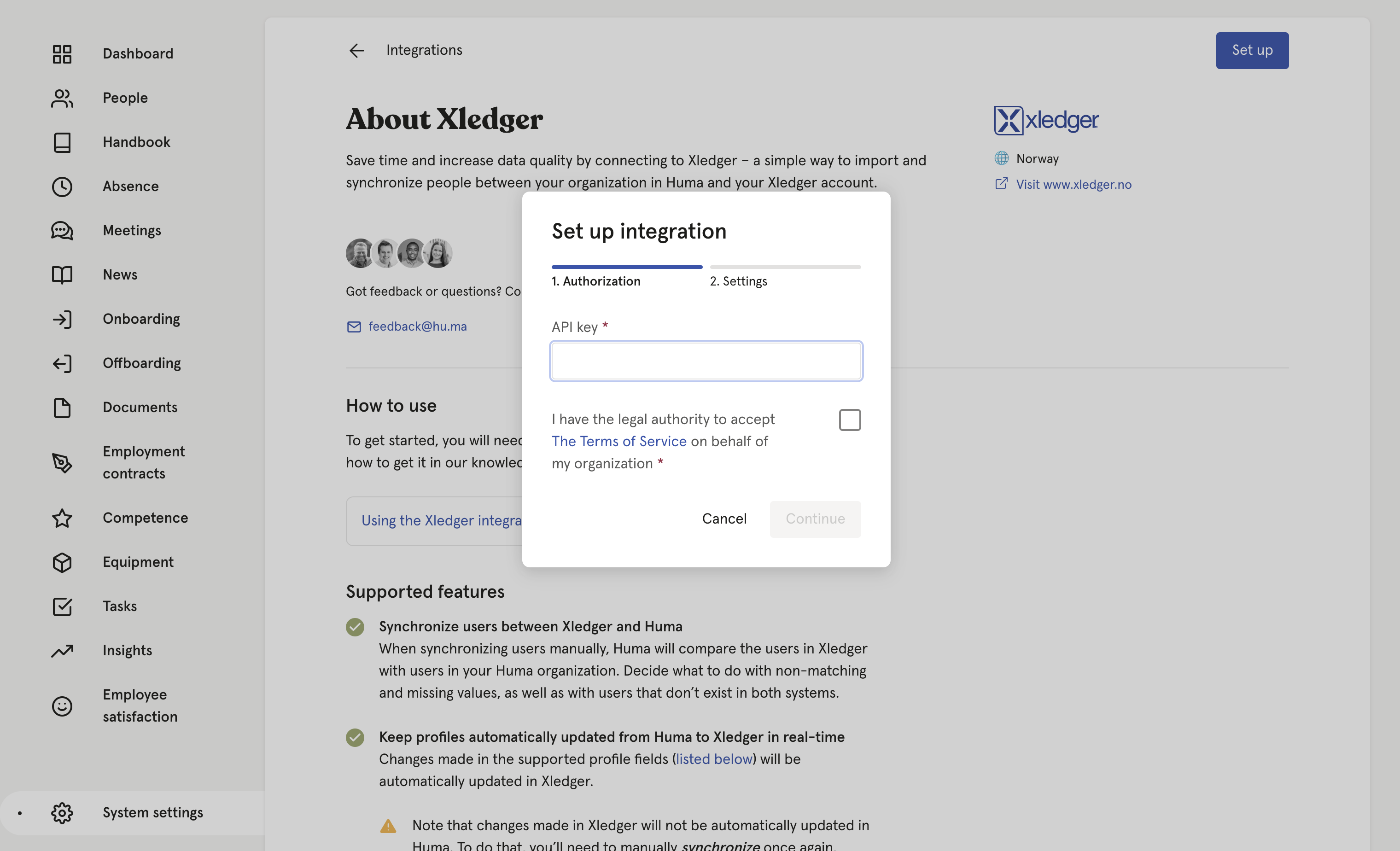
2b. Configure integrations settings
When adding users in Huma, you can choose if they should automatically be added in Xledger. If you leave this inactive, you need to do a manual sync to add the user in Xledger.
-
If you're using the Teamtailor integration, users added to Huma via that integration will also be added to Xledger.
- You can turn this on later if you prefer not to enable it now.
Click 'Save' and a connection is now established between the two systems.
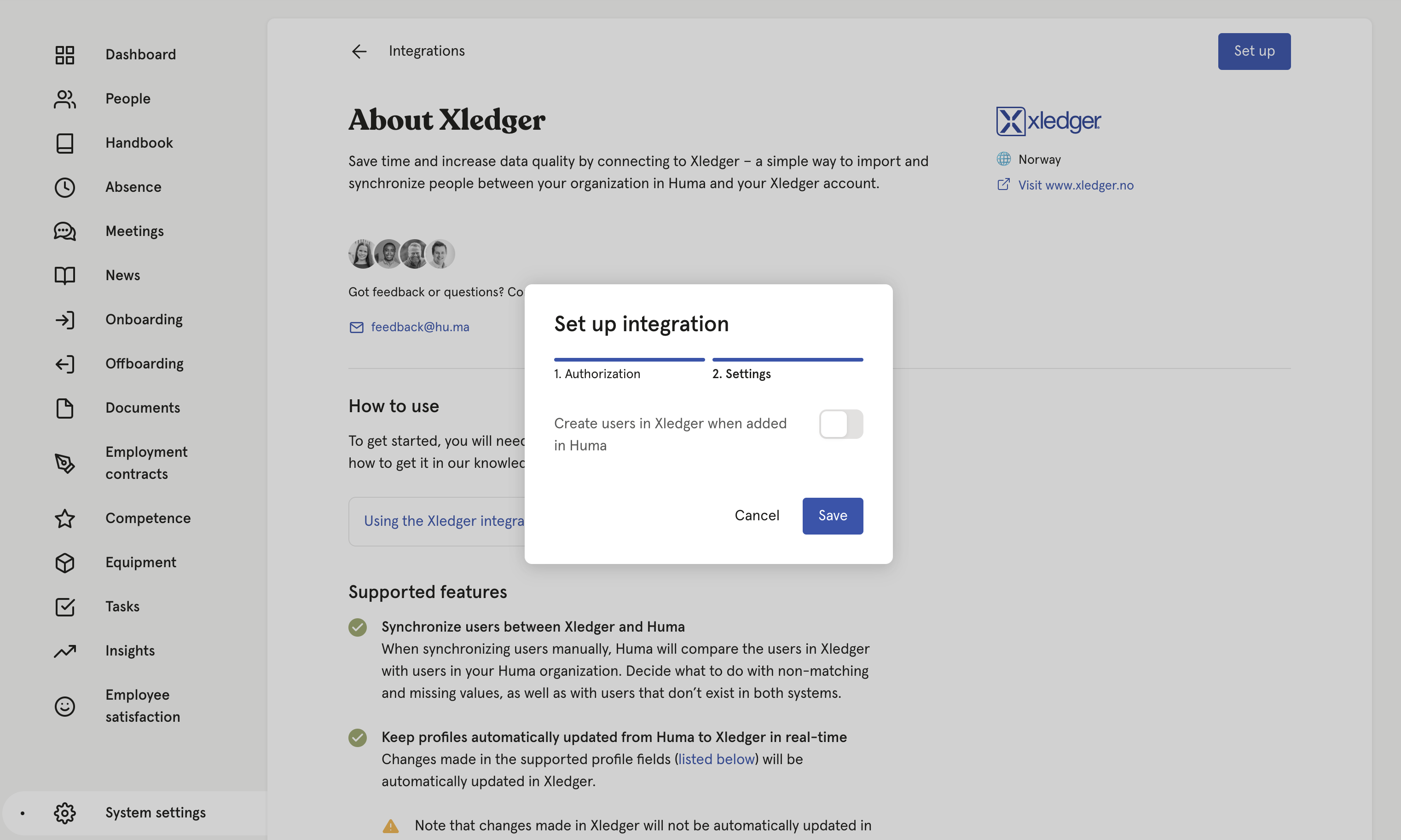
Step 3: Activate the integration, synchronize users, and choose how to handle any conflicts or missing values
After you click “Save”, you’ll be taken to the connection overview page. To activate the integration, you need to “Sync users.”
-
Click “Sync users.”
-
Matching users: Users found in both Huma and Visma (same email address in both systems).
-
Click “View users” to see which supporting fields don’t match or are missing.
-
Resolve any non-matching or missing values.
-
Click “Next.”
-
-
Non-matching users: Users who exist in only one of the systems.
-
Choose whether to create all users / selected users / do not create.
-
Choose how users should be created:
-
Visma → Xledger: Add users to Huma.
-
Huma → Xledger: Add users to Xledger.
-
-
4. Click “Sync users.” You’ll receive an email with the results.
Note
- Users who have not completed the “Required fields” will not be synchronized.
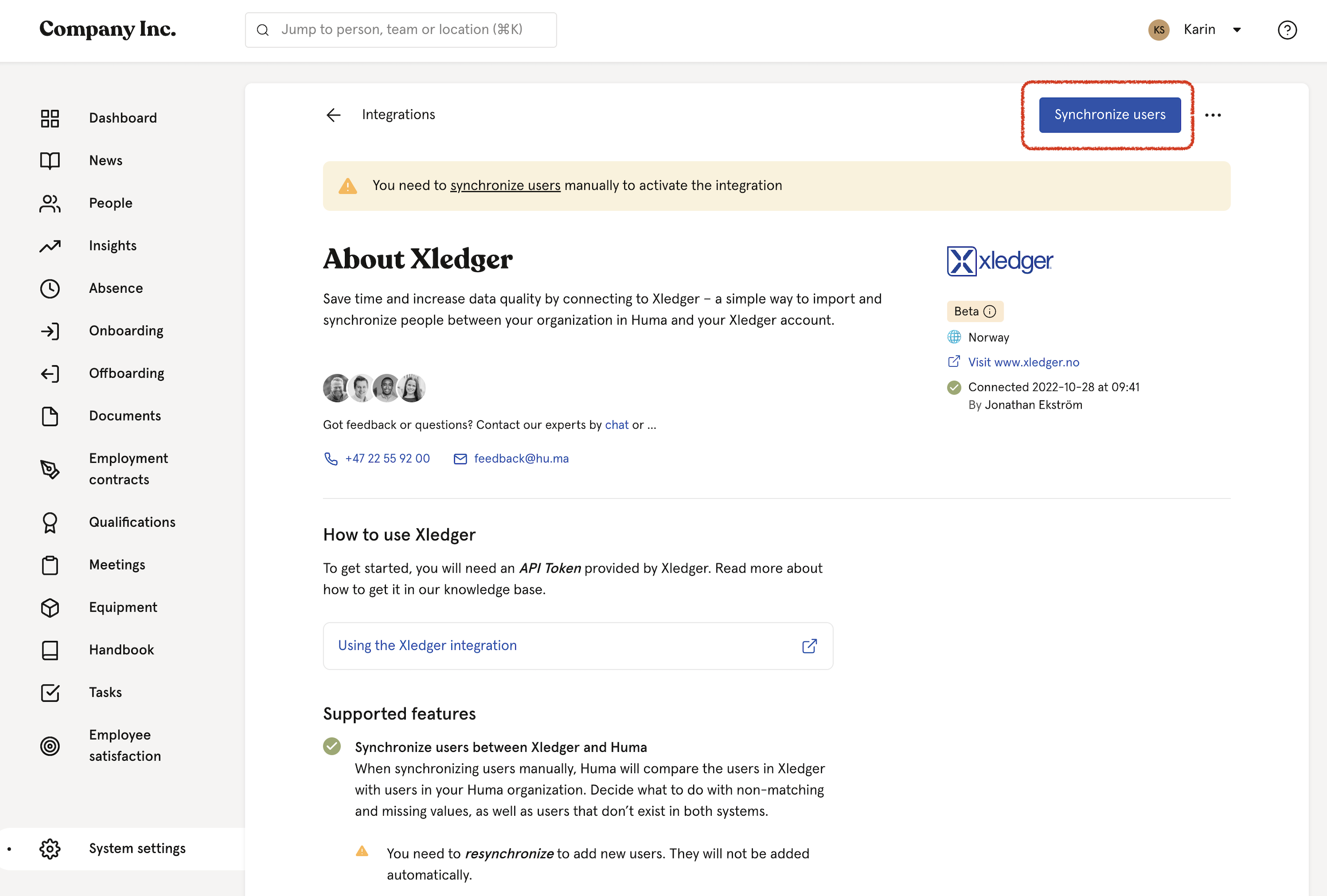
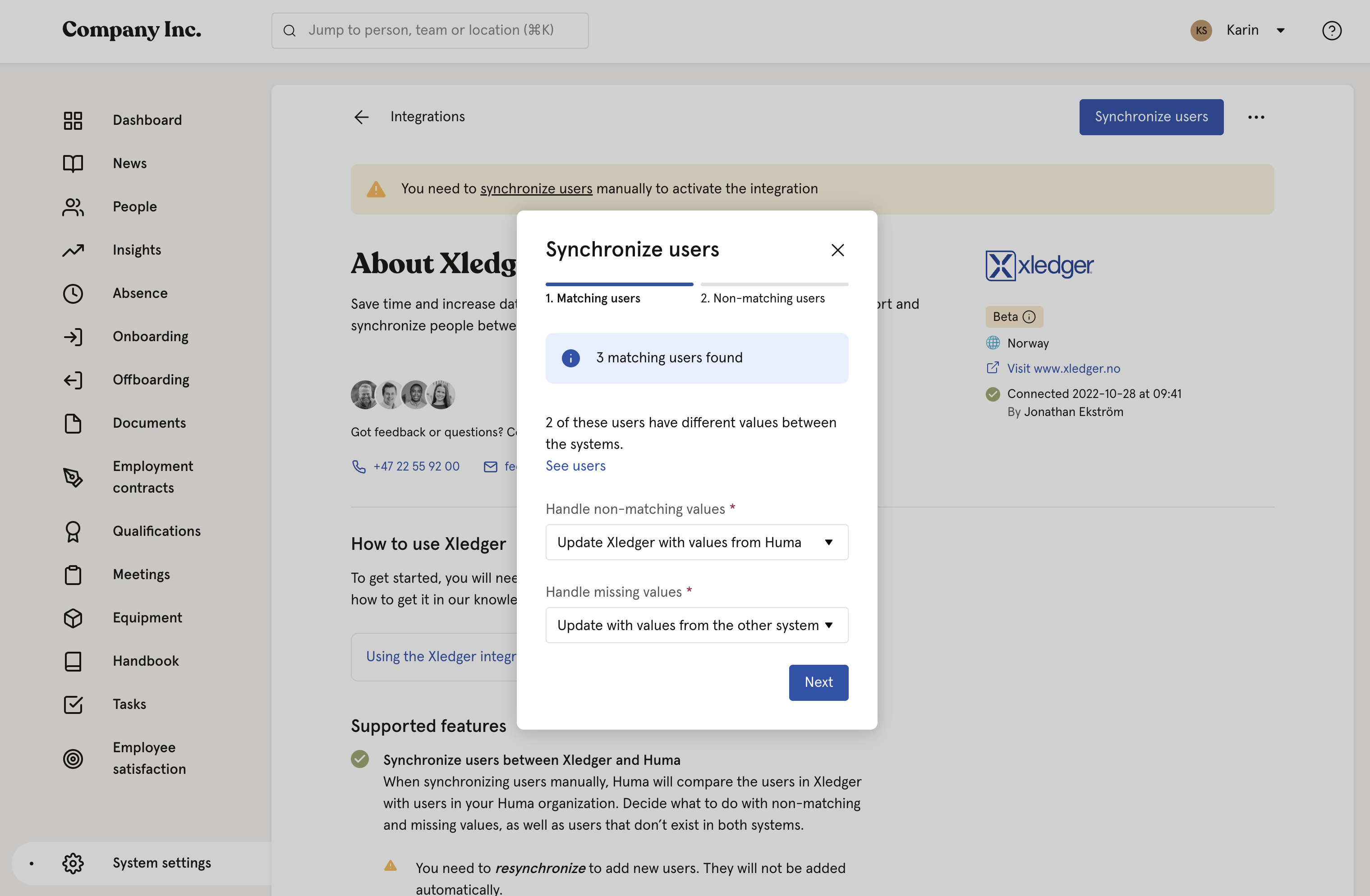
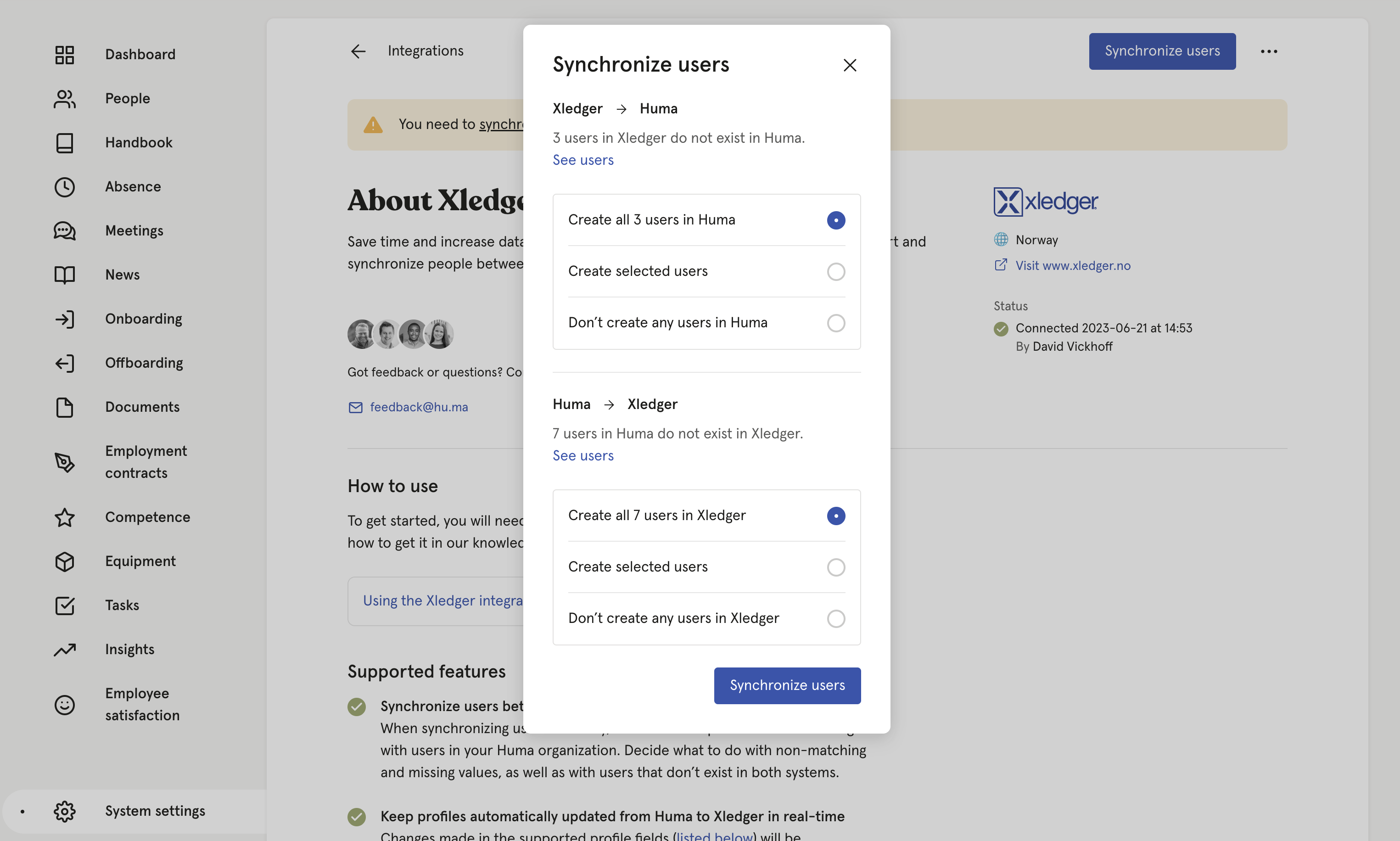
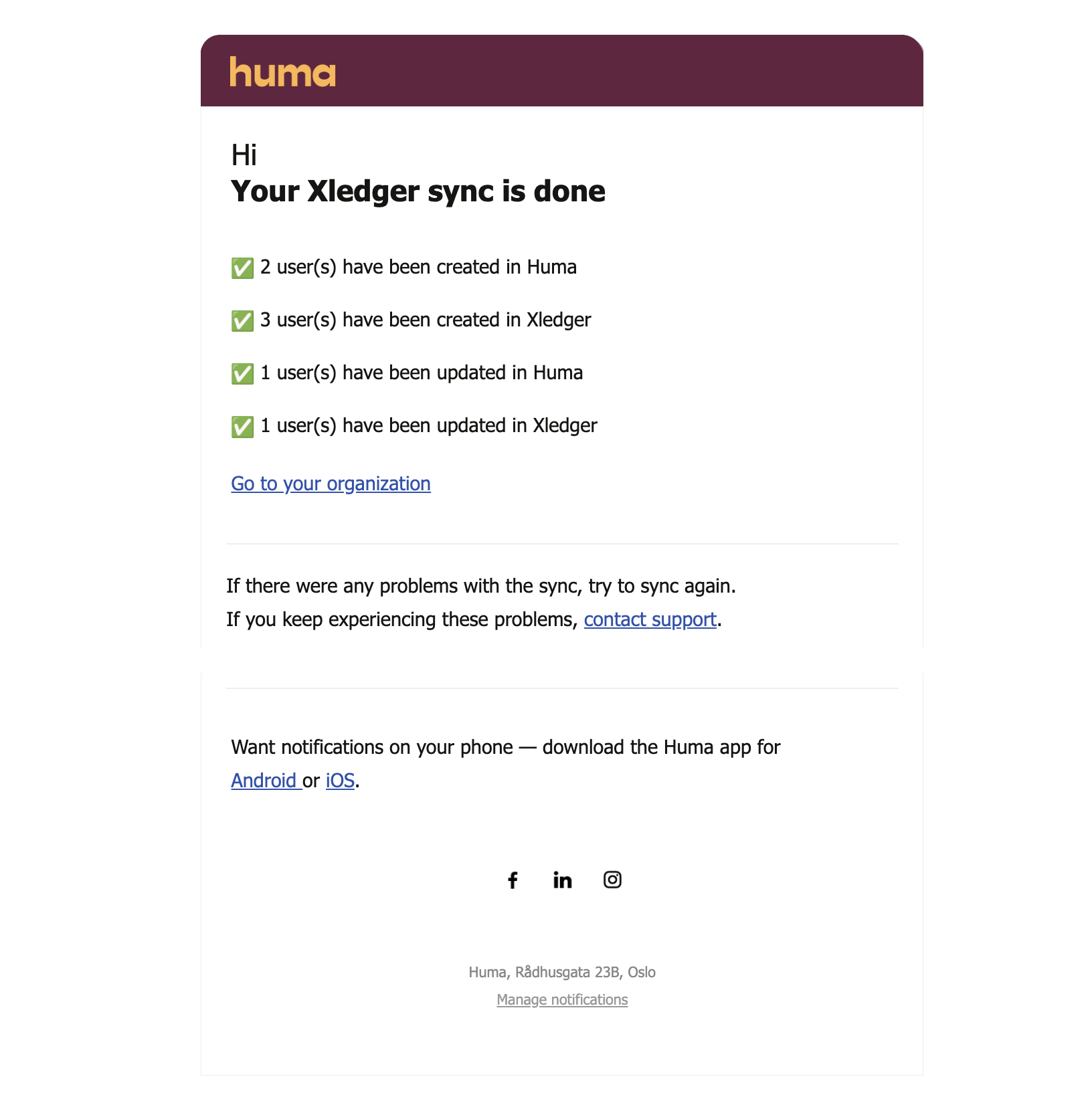
4. Your connection between Huma and Xledger is active
- Any changes made to supported fields in Huma (listed below) will be automatically updated in Xledger in real-time.
- Please be aware that you need to sync users to get the latest changes from Xledger. Changes made in Xledger will not be automatically be updated in Huma.
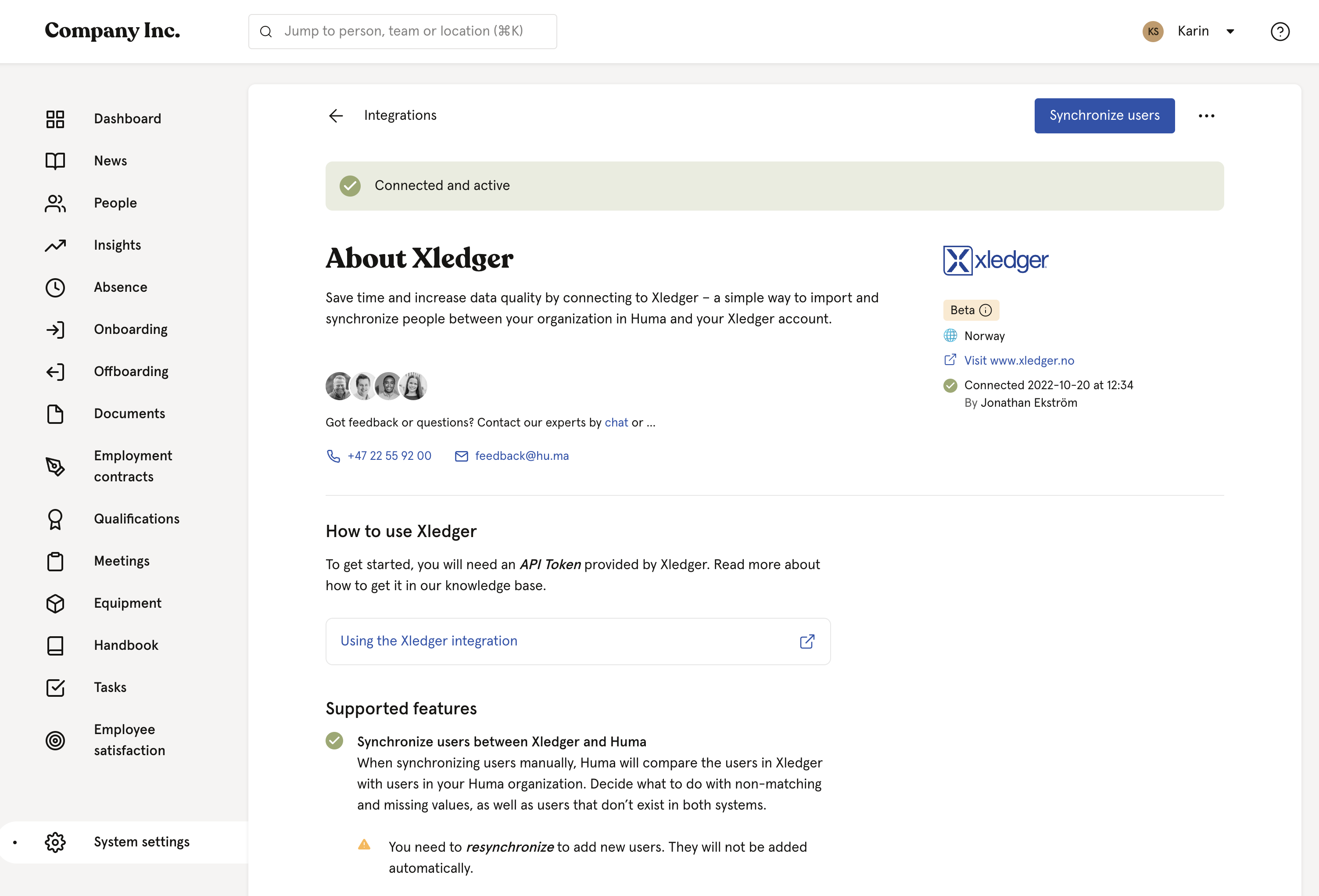
How to sync users
Use "synchronize users" when you have updated supported fields in Xledger, or when you have created new users in Huma.
If you need to do a manual sync between Xledger and Huma
- Go to the integration page for Xledger in Huma
- Click "Synchronize users" and follow the steps. Read more about the steps here.
Note
-
Please be aware that you need to sync users to get the latest changes from Xledger. Changes made in Xledger will not be automatically be updated in Huma.
-
When a transfer of data from Huma to Xledger is triggered, the name of the user who created the API token in Xledger, will remain in the history of the change.
-
If an error occurs during synchronization, you can see detailed information in the “Error log” on the Entra ID-integration page in Huma.
Deactivated or deleted users
When a user is deactivated in Huma...
- the user will not be deactivated in Xledger.
- the user will be locked for updates.
When a user is deleted in Huma...
- the user will not be deleted in Xledger.
- and not the other integration, the manual sync will ask you to create this user in Xledger.
- the user cannot be synced if there have been changes to their record in Xledger.
Supported fields
| Huma field |
Xledger Field |
|---|---|
| Email address* |
employee.contact.email employee.subledger.email Huma requires this field’s value to be |
| Employment ID |
employee.code Huma requires this field’s value to be |
| Given name |
employee.contact.firstName employee.subledger.description |
| Family name |
employee.contact.lastName employee.subledger.description |
| Phone number |
employee.contact.phone employee.subledger.phone Huma requires this field’s value to be |
| Date of birth | employee.contact.birthday |
| Bank account number |
employee.subledger.bankAccount The integration will update this field employee.subledger.company.country The integration can’t update this field’s |
| Address |
contact.address.streetAddress contact.address.zipCode contact.address.place contact.address.country.code subledger.address.streetAddress subledger.address.zipCode subledger.address.place subledger.address.country.code The integration can’t unset this |
| Gender | employee.contact.gender |
| Job title | employee.contact.jobTitle |
| Employment start date | employee.employmentFrom |
| Probation end date | employee.trialTo |
| Termination notice date | employee.noticeDate |
| Employment end date | employee.employmentTo |
| Identification | SSN - social security number |
Note
- If you receive "Error parsing query: Unterminated string", it may indicate that one of the supported fields contains a special character that cannot be interpreted.
Why isn't the "Job Title" field updated in Xledger?
You can enter job titles in two places in Xledger, and customers use Xledger in different ways, not always utilizing the job title field Huma actually support.
Today, job titles are synced from Huma to the field in Xledger called employee.contact.jobTitle.
- XRM
- Contact
- Select Employee
- View the "Job Title" field.